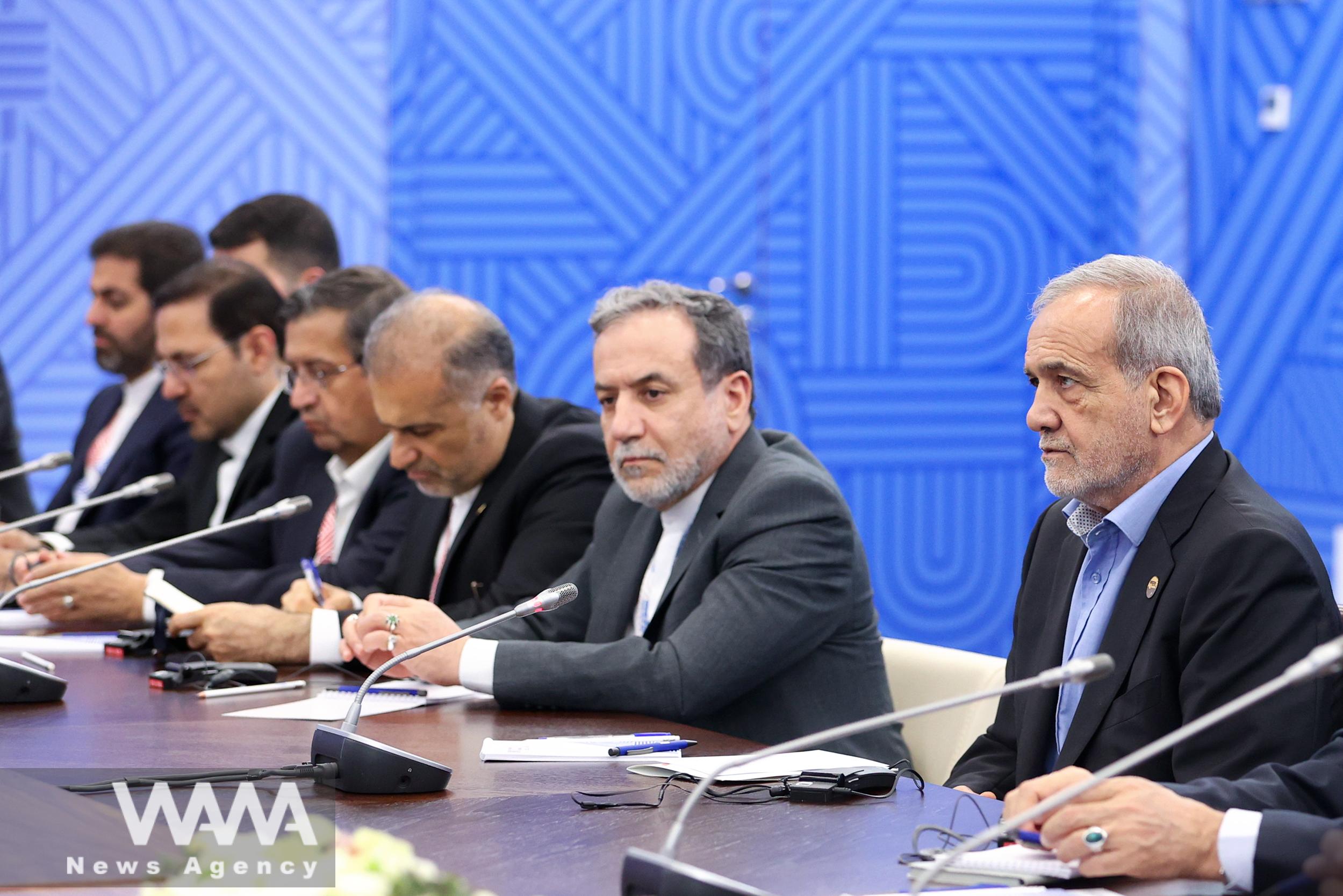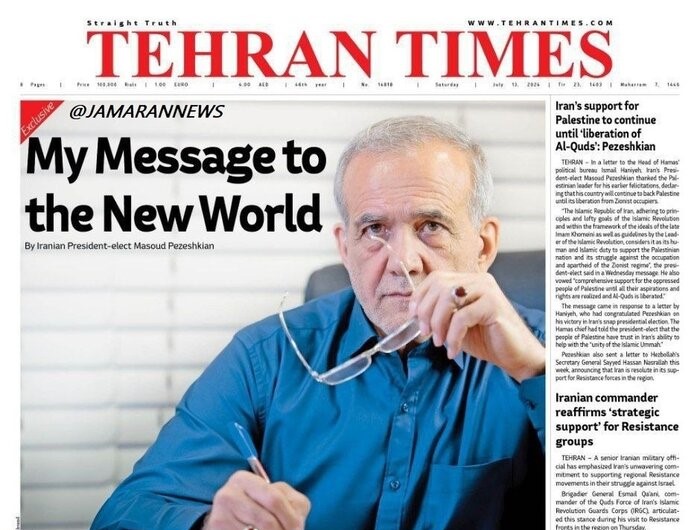Pezeshkian’s Role in the Non-Western World: The Strategy of Iran’s Fourteenth Government
WANA (Nov 23) – One of the main strategies of the Fourteenth Government of Iran in foreign policy is to strengthen Iran’s role in the non-Western world. This approach is clearly reflected in President, Masoud Pezeshkian’s statements over the past 100 days.
Masoud Pezeshkian assumed the presidency at a time when the world and the West Asian region were undergoing fundamental changes. These rapid transformations necessitated a new policy in Iran’s international relations.
Experts in international relations believe that, currently, global powers are shifting from a unipolar order to a multipolar one.

The sixteenth main summit of BRICS leaders was held in Kazan, the capital of Tatarstan, Russia, with the presence of Dr. Massoud Pezeshkian, President of the Islamic Republic of Iran and Iranian officials October 23, 2024. President.ir/ WANA News Agency
In this context, the United States and the West, which had dominated the world in recent decades through NATO and the G7, are facing a decline in their power.
The famous slogan of former President Trump, “Make America Great Again,” reflects this decline. Meanwhile, non-Western powers, particularly in Asia and other parts of the world, have become new centers of global power.
In this regard, the Islamic Republic of Iran seeks to strengthen its role in this new global power dynamic, taking these changes into account.
The President has emphasized the importance of cooperation with non-Western powers in his speeches at the BRICS summit and in an article published in the Tehran Times. He referred to Iran’s strategic relations with China and Russia, stating that these two countries have always supported Iran in difficult times. Furthermore, Iran is seeking to expand its global cooperation with other non-Western countries.

In the early days of his presidency, the President stressed multilateralism and highlighted the special place of countries like China and Russia in Iran’s foreign policy. He also introduced relations with African countries as one of the priorities of the Fourteenth government.
The President’s speeches at the BRICS summit, marking Iran’s first official participation in this alliance, showcased the government’s serious resolve to strengthen relations with non-Western powers.
In his remarks, he highlighted the important role of this alliance in creating a better, multipolar world and stressed the need to reduce the dominance of the dollar and increase the use of national currencies and digital currencies.

Five Key Proposals from Iran for BRICS Leaders
WANA (Oct 23) – In a key address at the BRICS summit held in Kazan, Russia, Iranian President Massoud Pezeshkian emphasized the potential for mutual cooperation between BRICS and Iran. He presented five significant proposals aimed at achieving the goals of this international organization, stating that pursuing diverse internal programs within the group would […]
Pezeshkian also underscored Iran’s relations with China and Russia as two key pillars of BRICS and announced progress on joint projects in infrastructure, construction, transit, and energy sectors. These actions demonstrate Iran’s firm commitment to moving toward a new global order where non-Western countries play a more prominent role.
Overall, the Fourteenth Government, emphasizing the importance of strengthening cooperation with non-Western countries, particularly within frameworks like BRICS and Shanghai, is seeking to redefine Iran’s place in a multipolar world.
John Mearsheimer, a renowned theorist in international relations, argued in his 2019 article that the West’s irrational insistence on expanding its order over other countries and regions—ultimately leading to devastating wars in Iraq, Afghanistan, and other global conflicts—has imposed futile costs on itself. Moreover, it has challenged the very premise of Western hegemony by failing to convince other nations of its moral legitimacy.

BRICS Must Ensure Enforcement of Decisions, Not Just Be a Talk Club
WANA (Oct 23) – The President of the Islamic Republic of Iran, emphasizing that BRICS should act more earnestly towards its goal of amplifying unheard voices in the global community, said: “We believe in the ideals of BRICS for reforming global governance, promoting multilateralism, and inclusive economic growth, and we are determined to play our […]
The Western behavior, especially by the United States towards Iran, Russia, China, and other rising non-Western powers, coupled with its unwavering support for a rogue actor like the Israeli regime, has gradually disillusioned many nations from supporting the West, thereby encouraging the formation of a new front against U.S. power.
The failed experience of Russia’s early attempts to align with the West under Putin, China’s appeasement which led to increased U.S. aggression, and America’s betrayal of the nuclear deal (JCPOA) have all placed Iran, Russia, and China on a shared path—one marked by the consistent betrayal of the West.
The liberal international order led by the U.S. may continue for several decades, but the decline of its hegemony and dominance is an inevitable reality. Iran’s Fourteenth Government, fully aware of this, is not only working to expand cooperation with the Western world but is also focusing on positioning Iran in the emerging global order.












